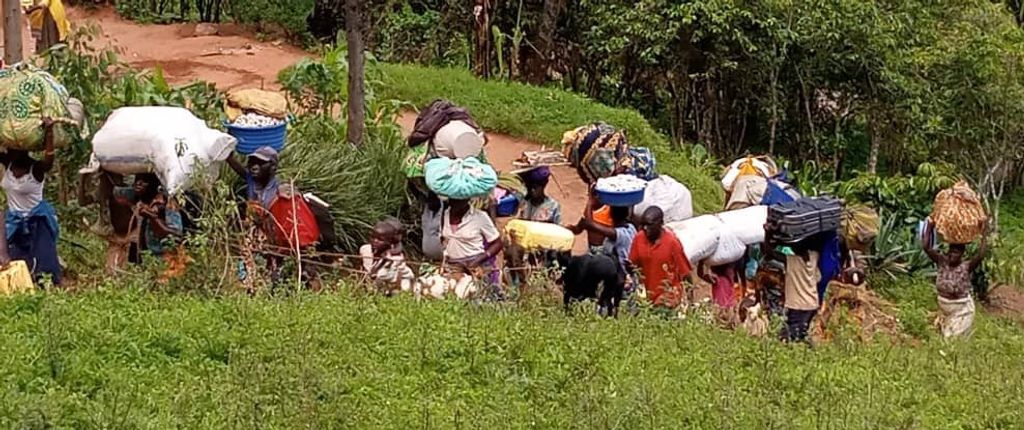
Health for internally displaced people in Ituri province
Due to the ongoing unrest in Ituri province, a total of 1.6 million people is internally displaced. Since the end of 2017, the situation in the Djugu area has again worsened and the population is suffering greatly from the armed conflict. There are attacks on the civilian population on an almost daily basis, and health care facilities and schools are also affected by the violence.
The health system is already weak and some of the buildings were destroyed during the conflict. In addition, the resources of the health facilities are severely strained by the additional patients.
Internally displaced people (IDPs) need access to health care, as they often arrive weakened or ill as a result of their flight and are accommodated in improvised camps. Since 2018, we have been providing free medical treatment to IDPs and are committed to improving water, sanitation and hygiene conditions in the heavily frequented health facilities.
The province of Ituri has been dominated by various armed conflicts and unrest for decades. During the cruel Ituri conflict in 1999 and 2003, more than 4 million people died as a result of violence or due to conflict-related restrictions in accessing health care.
Since the end of 2017, tensions between the ethnic groups of the Hema (mainly cattle herders) and Lendu (mainly farmers) in the region of Djugu (Ituri province) have increased again and intensified more since the beginning of a military offensive in December 2019. The mandate of the United Nations Organization Stabilization Mission in the DR Congo was therefore extended until the end of December 2020.
The UNHCR estimates that between March and April 2020 alone, some 3,000 human rights violations were committed, including massacres and sexual violence. That is an average of almost 50 attacks per day against the civilian population. Health institutions and their staff are also affected by the violence. Within one year (June 2019 - May 2020) almost 80 health care facilities in the Djugu and Mahagi region were destroyed.
As a result of constant insecurity, it is estimated that between December 2019 and June 2020, up to 500,000 people have fled Djugu, Irumu, and Mahagi areas. These are to be counted in addition to those already displaced – their exact number are currently difficult to determine but it certainly is a several hundred thousand. This brings the total number of internally displaced people in the province to 1.6 million, the majority being women and children.
Around 80% of the displaced people are currently accommodated in host families or sleep outdoors. Organised camps are very limited and already overcrowded. The living conditions are poor and humanitarian needs in health, nutrition and WASH are extremely high. The current supply by humanitarian actors is rather weak.
Internally displaced people are often weakened and injured by the strenuous flight and require medical treatment. However, they can often not afford the costs of treatment and medication. In addition, most health care facilities in the region - marked by years of conflict and a lack of resources - have inadequate water and hygiene structures.
- Free medical care for internally displaced people
- Improved water and sanitation infrastructure in health facilities
- Better hygiene standards in health centres to reduce diseases and their transmission as well as other health risks
- Distribution of medical kits to health centers and hospitals, and supporting them financially to enable them offer free medical services to the people
- Construction of basic water and hygiene infrastructure (such as latrines, showers and incinerators) in heavily frequented health centres
- Repair of 2 health centres that have been destroyed during the conflict
- Supply health centres with materials needed for the prevention of infection and occupational safety
- Regular on-the-job training to improve treatment quality as well as infection prevention and control measures
Country info
Capital: Kinshasa
Area: 2,345,410 km²
Population: ca. 102.3 million
Project data
Financing: German Federal Foreign Office (AA) and donations
Partners: Health centers and referral hospitals, local and national public health authorities








